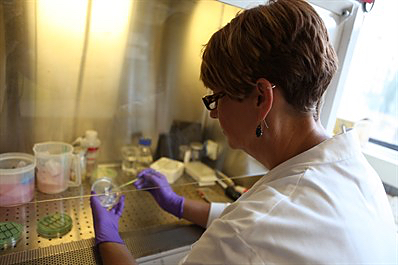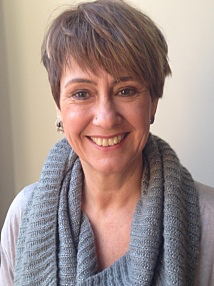Vertex Receives Two European Union Approvals for Cystic Fibrosis Drug KALYDECO (ivacaftor)
Written by |

Cambridge, Massachusetts based Vertex Pharmaceuticals Incorporated reports that the European Commission (EC) has approved expansion of the indication for its cystic fibrosis drug KALYDECO (ivacaftor), which now includes children aged two to five with cystic fibrosis (CF) and who have one of nine gating mutations in the cystic fibrosis transmembrane conductance regulator (CFTR) gene (G551D, G1244E, G1349D, G178R, G551S, S1251N, S1255P, S549N and S549R). EC KALYDECO approval has also been expanded to include people with CF aged 18 and older who have an R117H mutation.
Ivacaftor was previously approved in the European Union (EU) for use in people with CF ages 6 and older who have one of nine gating mutations. Vertex notes that in Europe, approximately 125 children with CF ages 2 to 5 have one of the nine gating mutations included in Wednesday’s approval and approximately 350 adults with CF have the R117H mutation. Vertex says it will now begin the country-by-country reimbursement approval processes for each new indication.
 “These approvals bring us closer to our goal of developing new medicines to treat the underlying cause of cystic fibrosis for as many people as possible,” says Vertex Executive Vice President and Chief Medical Officer Jeffrey Chodakewitz, M.D. in a release.
“These approvals bring us closer to our goal of developing new medicines to treat the underlying cause of cystic fibrosis for as many people as possible,” says Vertex Executive Vice President and Chief Medical Officer Jeffrey Chodakewitz, M.D. in a release.
Cystic fibrosis, estimated to affect approximately 75,000 people in North America, Europe and Australia, is caused by a defective or missing cystic fibrosis transmembrane conductance regulator (CFTR) protein resulting from mutations in the CFTR gene that cause thick and sticky mucus to be secreted in the body, which in turn causes clogging of the airways and the gastrointestinal tract in particular.
Children must inherit two defective CFTR genes — one from each parent — to develop CF. There are approximately 2,000 known mutations in the CFTR gene, which contains the production code for a protein that functions as a channel through which chloride ions and water flow out of cells. In the cells of CF patients, these chloride channels are dysfunctional or even absent. Some CFTR mutations can be determined by a genetic, or genotyping test. The defective function or absence of CFTR proteins cause CF by creating non-working or too few CFTR proteins at the cell surface, resulting in poor flow of salt and water into and out of the cell in a number of organs. In the lungs, this leads to the abnormally thick, sticky mucus buildup that can cause chronic lung infections and progressive lung damage in many patients. The median age of death from CF is in the mid-to-late 20s, although with advances in treatment more people with CF are living into their 30s, 40s, and even 50s.
In people with gating mutations, or an R117H mutation, the CFTR protein reaches the cell surface but does not work properly. Known as a CFTR potentiator, KALYDECO/ivacaftor is an oral medicine designed to help CFTR proteins at the cell surface open more often to improve the transport of salt and water across the cell membrane, which helps hydrate and clear mucus from the airways.
Ivacaftor in Children Ages 2 to 5 with Gating Mutations
Researchers have discovered that the progressive damage caused by cystic fibrosis can start at birth, so early treatment is critical to offering the best chance of improving long-term outcomes, says Professor Jane Davies, M.D., of the Royal Brompton Hospital and Imperial College, London, and a lead Principal Investigator on the ivacaftor Phase 3 study in children ages two to five. “Today’s approval means that, for the first time, well be able to treat the underlying cause of the disease in very young children, possibly even before they experience severe signs and symptoms of CF.” Professor Davies also works on a number of commercially-sponsored clinical trials in CF, and is the local principal investigator on trials of VX-770 (Vertex) and Ataluran (PTC) which are novel small-molecules directed at CFTR function. She is part of the respiratory and CF clinical studies group of the Medicines for Children Research Network and is an honorary consultant and MCRN research champion for Royal Brompton Hospital.
 A group led by Professor Davies at the Royal Brompton Hospital has been awarded a grant of £750K by the UK Cystic Fibrosis Trust in the first of its new Strategic Research Centre (SRC) . The purpose of these grants is to establish multi-disciplinary groups around a specific problem, bring in expertise from other disease areas and train junior scientists and clinicians to inspire an interest in CF research. Royal Brompton has the largest CF clinic in Europe, caring for patients from newborn into adulthood. Pseudomonas aeruginosa, which commonly afflicts people with CF, is the most common serious respiratory infection contributing to the irreversible lung damage, which leads ultimately to respiratory failure.
A group led by Professor Davies at the Royal Brompton Hospital has been awarded a grant of £750K by the UK Cystic Fibrosis Trust in the first of its new Strategic Research Centre (SRC) . The purpose of these grants is to establish multi-disciplinary groups around a specific problem, bring in expertise from other disease areas and train junior scientists and clinicians to inspire an interest in CF research. Royal Brompton has the largest CF clinic in Europe, caring for patients from newborn into adulthood. Pseudomonas aeruginosa, which commonly afflicts people with CF, is the most common serious respiratory infection contributing to the irreversible lung damage, which leads ultimately to respiratory failure.
The European Commission’s KALYDECO decision is based on previously announced results of a 24-week open-label Phase 3 study designed to evaluate the safety and pharmacokinetics of weight-based dosing of ivacaftor (50 mg or 75 mg twice daily) in children aged two to five. A weight-based oral granule formulation of ivacaftor that can be mixed in soft foods or liquids was created for dosing these younger children, and is available in two strengths, 50 mg and 75 mg. The EC approval also includes an extension of weight-based dosing of ivacaftor to children ages six to 11 who weigh less than 25 kg, using the new oral granule formulation.
“Expanding the use of ivacaftor will allow younger children with cystic fibrosis to benefit from earlier treatment of the underlying cause of their disease,” says Dr. Chodakewitz.
Ivacaftor in Adults with an R117H Mutation
“While people with an R117H mutation can exhibit a wide range of severity in their CF, once their disease begins to progress, lung function decline can be severe,” Dr. Chodakewitz notes. “This approval is an important advance for adults with an R117H mutation who will now have a medicine to treat the underlying cause of their disease for the first time.”
The European Commission’s Decision is based on previously announced data from a Phase 3 study of ivacaftor that enrolled 69 people with CF who had an R117H mutation.
KALYDECO/ivacaftor is the first medicine to treat the underlying cause of CF in people with specific mutations in the CFTR gene. Known as a CFTR potentiator, ivacaftor is an oral medicine that aims to help the CFTR protein function more normally once it reaches the cell surface, to help hydrate and clear mucus from the airways.
For complete product information, see the Summary of Product Characteristics that can be found on https://www.ema.europa.eu once posted.
Sources:
Vertex Pharmaceuticals Incorporated
The European Commission
Royal Brompton Hospital







